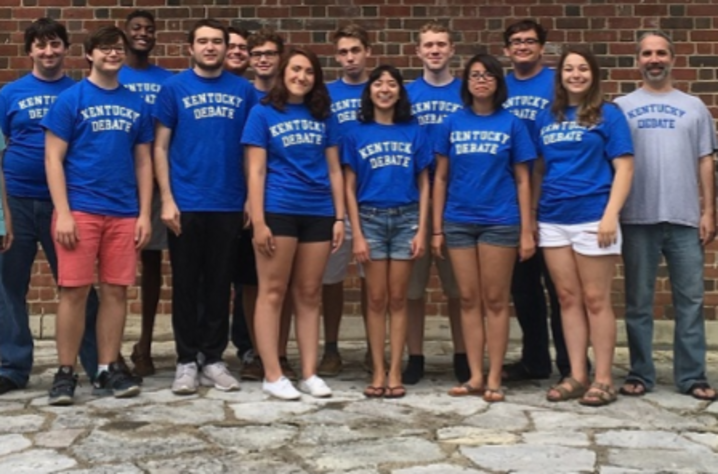Research on Intimate Partner Violence with Claire Renzetti
By Vice President for Research Lisa Cassis
This podcast features Claire Renzetti, the Judi Conway Patton Endowed Chair in the University of Kentucky Center for Research on Violence Against Women, and professor and chair of sociology in the UK College of Arts and Sciences.
Research on Intimate Partner Violence with Claire Renzetti
By Vice President for Research Lisa Cassis
This podcast features Claire Renzetti, the Judi Conway Patton Endowed Chair in the University of Kentucky Center for Research on Violence Against Women, and professor and chair of sociology in the UK College of Arts and Sciences.
Susan Odom Pioneers Research in Advanced Batteries
By Jenny Wells and Alicia Gregory
University of Kentucky REVEAL Research Mediarecently caught up with Susan Odom, an assistant professor of chemistry in the UK College of Arts and Sciences, to learn more about her pioneering work in electrochemical energy storage.
Strong Fall Semester for UK Debate Team
By Jordyn Comitor
 The University of Kentucky Debate Team had a strong first semester of their 2016-2017 season, led by the exceptionally strong freshmen team of Dan Bannister and Anthony Trufanov.
The University of Kentucky Debate Team had a strong first semester of their 2016-2017 season, led by the exceptionally strong freshmen team of Dan Bannister and Anthony Trufanov.
Faculty Receive Funding to Develop Responses to Opioid Injection Epidemic
By Jenny Wells
Two faculty members from the University of Kentucky have received three of four funded awards from the National Institutes of Health (NIH) to develop responses to the opioid injection epidemic that can be implemented by public health systems in rural communities.
Summer Research Grants Offer Rewarding Experiences
One of the benefits of a large research university is the opportunity it provides undergraduates to study a wide variety of disciplines while working with nationally recognized scholars. In order to promote these types of educational experiences for students, the Office of Undergraduate Research offers Research and Creativity Grants during the summer term.
Import Outlook archive into Office365 online archive
In the past, we set up Outlook archives so that email could be stored on the A&S file server and free up the limited space on the Exchange server. This was an imperfect system because the archive file type (.pst) doesn't perform very well on server storage, but if we moved the file to your local desktop's C drive, it might be lost in a hard drive crash or Windows reinstall.
UK Undergraduates Awarded at Kentucky Academy of Science Annual Meeting
By Amanda Fuller
The Kentucky Academy of Science (KAS) held its 2016 Annual Meeting Nov. 4‐5, at the University of Louisville. More than 700 scientists and students attended the meeting, and hundreds of undergraduate and graduate students from Kentucky and regional colleges and universities participated in the research competitions.
Winners of the student competitions from the University of Kentucky included:
